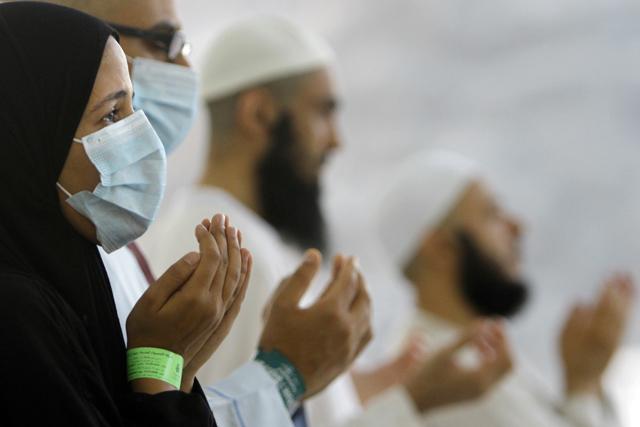You are here
Saudi review finds over 100 more MERS infections
By AP - Jun 03,2014 - Last updated at Jun 03,2014

DUBAI — Saudi Arabia, which is grappling to contain the spread of a frequently deadly respiratory virus, announced Tuesday that a review of the illness led authorities to sharply revise upward the number of confirmed infections and deaths from the disease.
The surprise disclosure followed the unexpected firing of the kingdom’s deputy health minister, heightening concerns about the country’s ability to halt the spread of the Middle Eastern respiratory virus. He was the second senior Saudi health official to lose his job in less than two months.
A report by the official Saudi Press Agency said authorities have registered a total of 688 confirmed infections and 282 deaths as a result of MERS since the virus was first identified in 2012. Of those infected, 53 were reported to still be receiving treatment.
The Saudi health ministry’s most recent tally of cases listed 575 cases and 190 deaths, meaning that over 100 cases had previously gone unreported.
MERS belongs to a family of viruses known as coronaviruses that include both the common cold and SARS, or Severe Acute Respiratory Syndrome, which killed some 800 people in a global outbreak in 2003. MERS often starts with flu-like symptoms but can lead to pneumonia, breathing problems and in severe cases, kidney failure and death.
Dr Tariq Madany, who heads the country’s medical advisory council, said the revised toll was the result of a “full review” of previous cases undertaken to better understand the virus’ spread.
“The ministry is committed to providing all the data concerning the coronavirus and putting polices in place to protect public health,” the agency quoted Madany as saying. “Though the review showed confirmed cases that needed to be added, we are still witnessing a decline in the number of newly registered cases in the past few weeks.”
Acting Health Minister Adel Faqih on Monday issued an order removing his deputy, Ziad Memish, according to a brief statement on the ministry’s website. It did not give a reason for the move.
King Abdullah sacked the previous health minister in April following a spike in reported infections.
Not everyone who contracts the virus that causes MERS gets sick, while others show only mild symptoms before they recover. There is no commercially available vaccine.
Saudi Arabia has been the epicenter for the disease. The virus has since spread to other parts of the world, including the wider Middle East, and parts of Europe, Asia and the United States.
Scientists believe camels may play a role in primary infections but are unsure exactly how the disease spreads to humans. The disease can spread between people, but typically only if they are in close contact with one another. Many of those infected have been healthcare workers.
The World Health Organisation last month said MERS does not yet constitute a global health emergency despite a recent spike in infections, though it continues to monitor the spread of the virus.
Related Articles
A foreigner has died from MERS in the western Saudi city of Jeddah, where authorities have sought to calm fears over the spreading respiratory illness, the health ministry said Monday.
Saudi Arabia will test camels in the kingdom for Middle East Respiratory Syndrome (MERS), its agriculture minister was quoted as saying, a day after a Saudi study reinforced a long-suspected link between the animals and human cases of the deadly virus.
Scientists have found natural human antibodies to the newly emerging Middle East Respiratory Syndrome (MERS) virus and say their discovery marks a step towards developing treatments for the often fatal disease.












